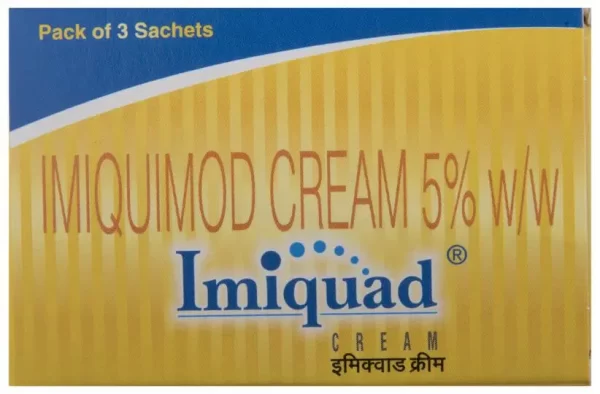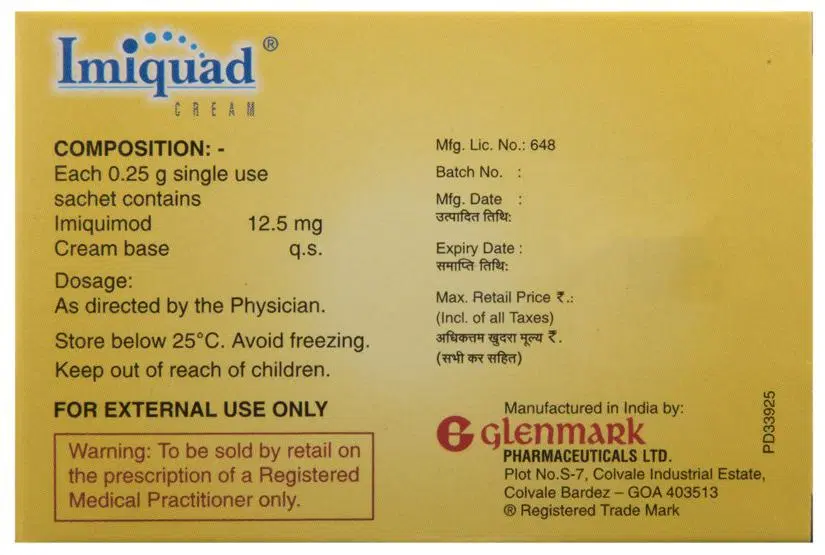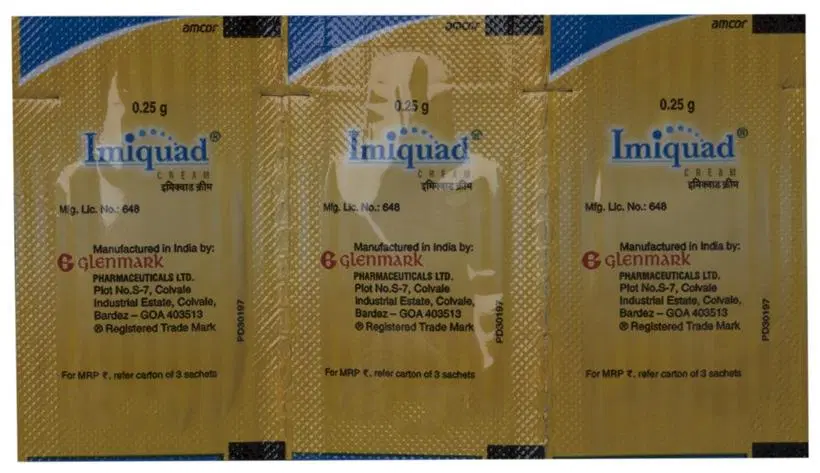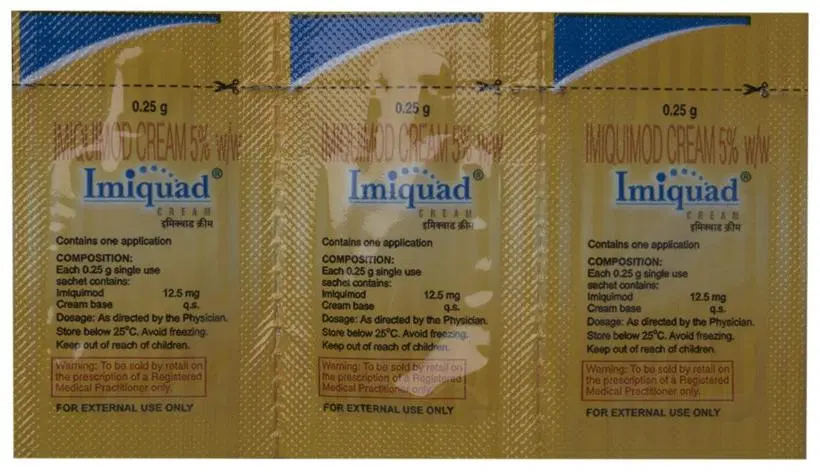Zyclara (Imiquimod) Cream
Generic
Imiquimod (Generic Equivelent to Zyclara)
Imiquimod (Generic Equivelent to Zyclara)
Zyclara Cream is used in the treatment of genital warts, rough and scaly patches that appear due to exposure to the sun, and a certain type of skin cancer. It works by triggering the immune system to fight against the virus responsible for these warts.
Zyclara Cream is for external use only. You should always use it exactly as your doctor has told you. The affected area should be clean and dry before application. You must wash your hands thoroughly before and after applying this medicine. This medicine should be used regularly to get the most benefit from it. Do not use more than you need as it will not clear your condition faster and some side effects may be increased. If your condition goes on for longer than four weeks or gets worse at any time, let your doctor know. You can help this medication work better by keeping the affected areas clean, making sure they are dry, and washing your hands before and after treating the infection.
Common side effects of this medicine include application site reactions (such as burning, irritation, itching, and redness), dry skin, edema, and induration. Consult your doctor if these side effects persist for a longer duration. Avoid direct contact with your eyes. In case of accidental contact, wash your eyes with plenty of water and seek medical attention.
Before using this medicine, you should tell your doctor if you are pregnant, planning a pregnancy, or breastfeeding. You should tell your doctor if you have any kidney or liver diseases so that your doctor can prescribe a suitable dose for you.
Uses Of Zyclara Cream
- Genital warts (Skin bumps on or around the genital or anal area)
- Actinic keratosis
- Basal cell cancer
Benefits Of Zyclara Cream
In Genital Warts (Skin Bumps On Or Around The Genital Or Anal Area)
Zyclara Cream is used for the treatment, control, prevention, & improvement of genital warts (Skin bumps on or around the genital or anal area). It effectively removes the warts, promotes healing of injured skin and helps in formation of new healthy layers of skin.
In Actinic Keratosis
Actinic keratosis is an abnormal rough and scaly growth of skin, due to long-term exposure to the sun. These lesions can lead to skin cancer and need medical attention. Zyclara Cream kills or stops the growth of cancer cells and also prevents the multiplication of cancer cells. This helps to prevent skin cancer and also improves the skin texture.Use it as prescribed by the doctor and follow all the instructions carefully.
In Basal Cell Cancer
Zyclara Cream stimulates the immune system to release a number of chemicals called cytokines, which are important in fighting viruses and destroying cancer cells. When used to treat skin cancers and precancerous lesions it results in inflammation, which destroys the lesion. You may have to use Zyclara Cream for several weeks. Continue using this medicine as directed by the doctor.
Side Effects Of Zyclara Cream
Most side effects do not require any medical attention and disappear as your body adjusts to the medicine. Consult your doctor if they persist or if you’re worried about them.
Common Side Effects Of Zyclara
- Dry skin
- Application site reactions (burning, irritation, itching and redness)
- Edema (swelling)
- Skin flakes
- Skin ulcer
- Induration (hardening of a normally soft tissue or organ)
How To Use Zyclara Cream
This medicine is for external use only. Use it in the dose and duration as advised by your doctor. Check the label for directions before use. Clean and dry the affected area and apply the cream. Wash your hands after applying, unless hands are the affected area.
How Zyclara Cream Works
Zyclara Cream works in genital warts by triggering the immune system to produce natural substances which help fight against the virus, that causes warts. Researchers don’t know how exactly it works in actinic keratosis or basal cell cancer.
Disclaimer :The information provided on the website is intended to facilitate awareness about healthcare products and medical conditions generally but it is not a substitute for professional medical attention or advice. You should always speak with a qualified healthcare practitioner before taking any prescription or non-prescription drug. |
| Product Type--Salt | Generic–Imiquimod (Generic Equivelent to Zyclara) |
|---|---|
| tag--Manufacturer | Best Selling–Sun Pharmaceutical, Top Brand–Glenmark Pharmaceuticals |
| Power--Pack Size | 12.5mg–1gm in 1 Tube (1 Tube), 12.5mg–1gm in 1 Tube (2 Tubes), 12.5mg–1gm in 1 Tube (4 Tubes), 12.5mg–1gm in 1 Tube (8 Tubes), 12.5mg–1gm in 1 Tube (1 Tube), 12.5mg–1gm in 1 Tube (2 Tubes), 12.5mg–1gm in 1 Tube (4 Tubes), 12.5mg–1gm in 1 Tube (8 Tubes) |




